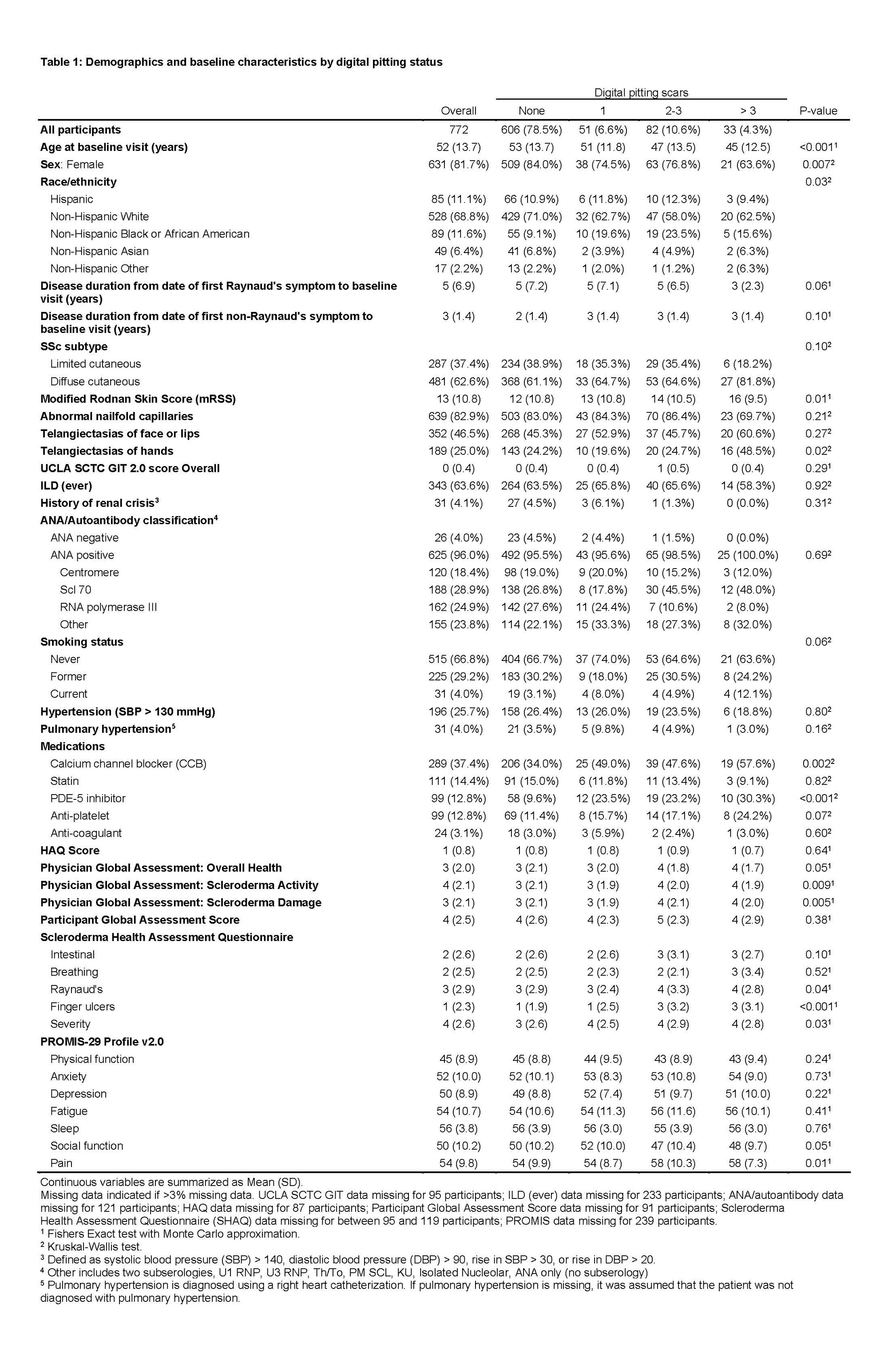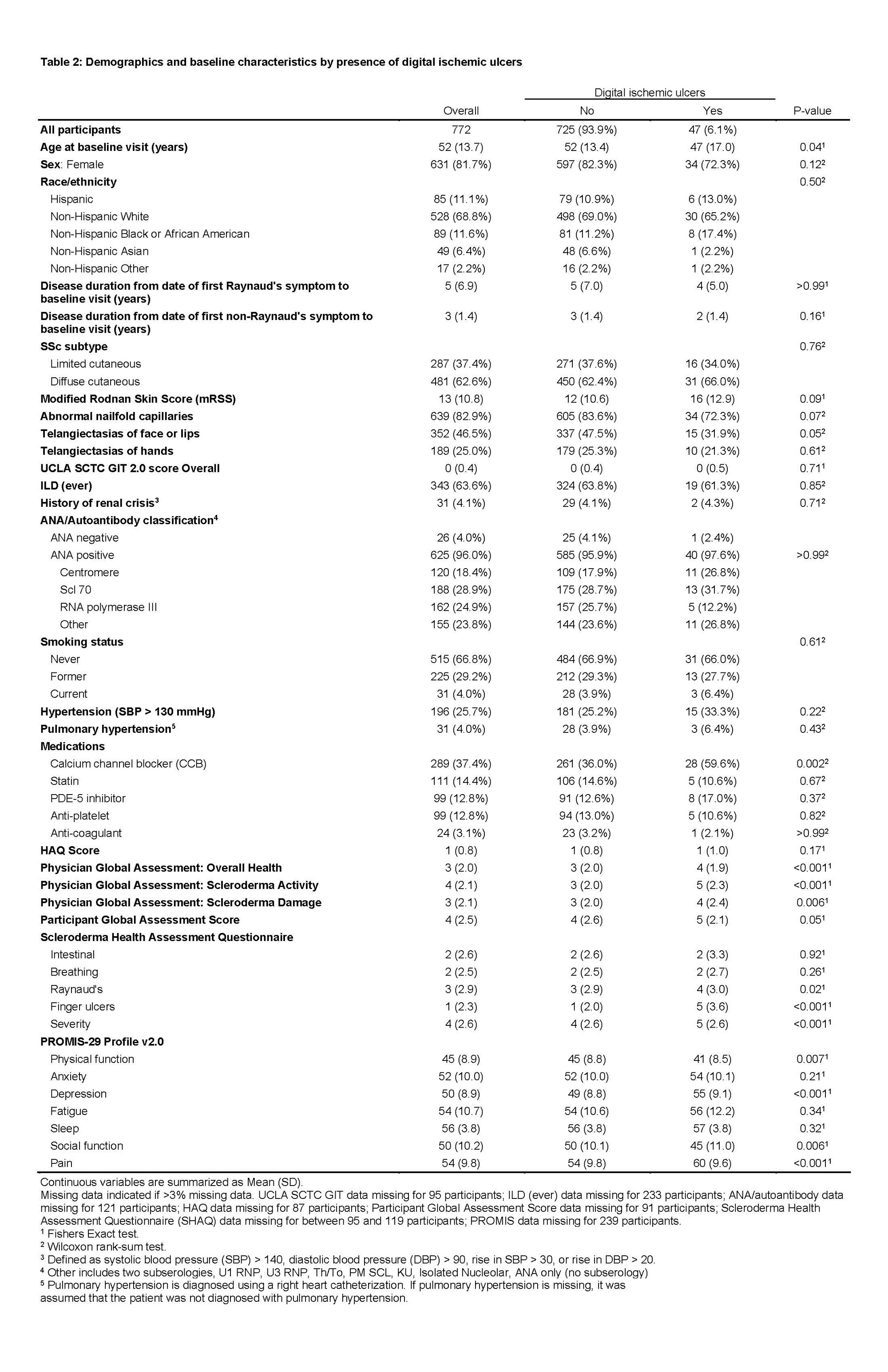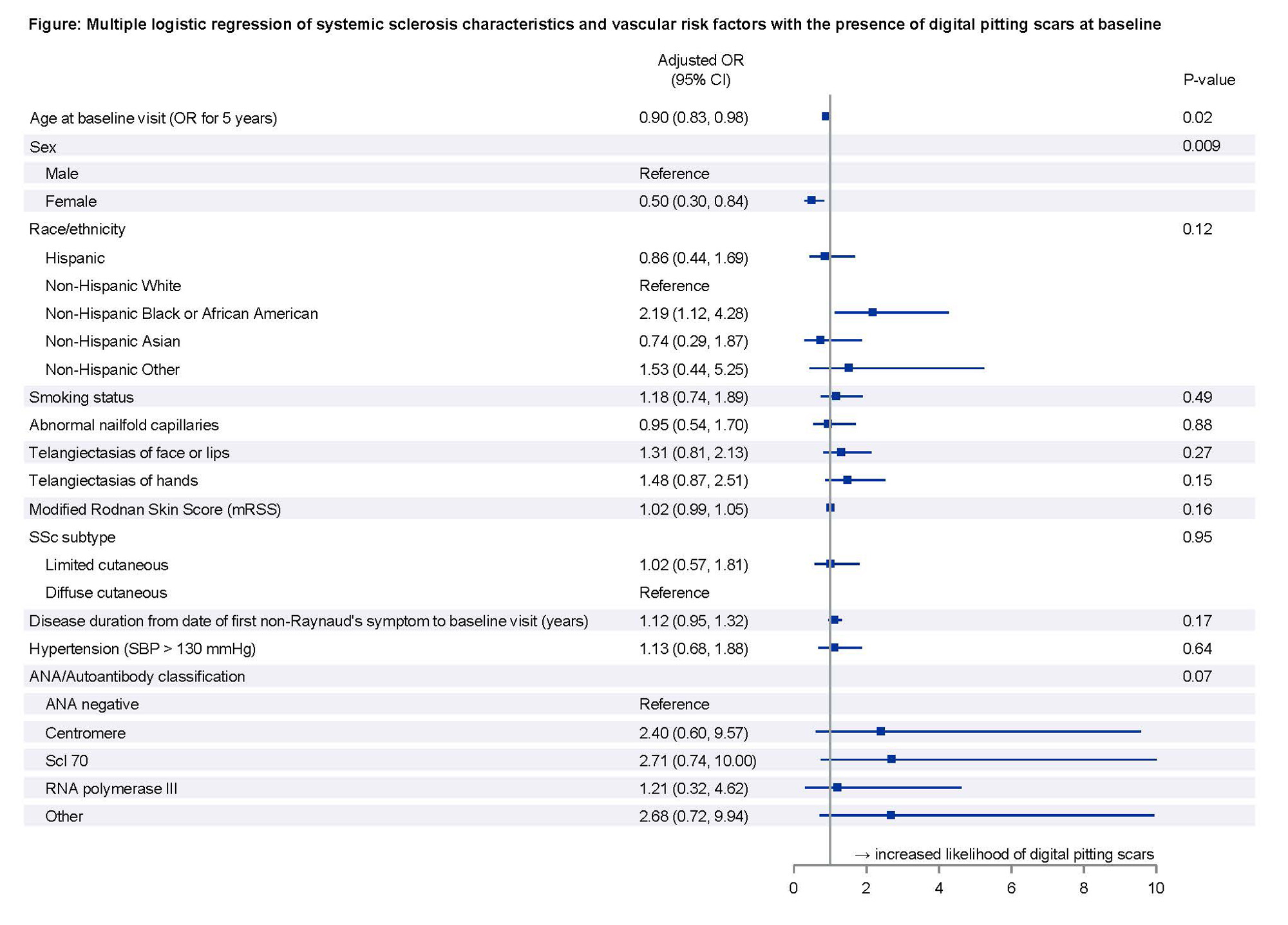Session Information
Date: Sunday, November 12, 2023
Title: (0609–0672) Systemic Sclerosis & Related Disorders – Clinical Poster I: Research
Session Type: Poster Session A
Session Time: 9:00AM-11:00AM
Background/Purpose: Digital ischemic ulcers (DIU) develop in 36-44% of patients with systemic sclerosis (SSc).1,2Prior international observational studies have evaluated characteristics of digital pitting and ulcers in their SSc patient populations; however, these studies do not necessarily reflect the US SSc patient population. We examined the prevalence of digital ischemic complications in a US-based longitudinal registry and evaluated clinical factors and patient reported outcomes associated with current digital pitting scars (DPS) and DIU.
Methods: We conducted a cross-sectional study utilizing the Collaborative National Quality and Efficacy Registry (CONQUER), a US-based, prospective, multi-center cohort of adults with SSc who meet 2013 ACR/EULAR Classification Criteria, with a disease duration ≤ 5 years from first non-Raynaud’s symptom at enrollment. At study enrollment, clinicians recorded the presence of DPS and DIU, and demographic, clinical, laboratory variables, and patient reported outcomes were collected. Multivariable-adjusted logistic regression models were designed using directed acyclic graphs.
Results: Among 772 eligible CONQUER participants, 166 (22%) had at least one DPS and 47 (6%) had active DIU at enrollment (Tables 1 and 2). Half of the participants with DPS were prescribed calcium channel blockers. Participants with DPS had worse PROMIS-29 v2.0 social function and pain scores, and participants with DIU had worse physical function, depression, social function, and pain scores. In our multivariable logistic regression model, younger age and male sex were associated with DPS (OR for female sex 0.50, 95% CI: 0.30 to 0.84 and OR for increased age by 5-year increments 0.90, 95% CI: 0.83 to 0.98, Figure). Race, tobacco use, abnormal nailfold capillaries, presence of telangiectasias, mRSS, disease subtype, disease duration, hypertension, and autoantibody status were not associated with DPS.
Conclusion: Digital ischemic complications were associated with impaired quality of life among patients with SSc, specifically in the domains of social function and pain. Younger age and male sex were associated with presence of digital pitting scars.
References
- Khimdas S, Harding S, Bonner A, et al. Associations with digital ulcers in a large cohort of systemic sclerosis: results from the Canadian Scleroderma Research Group registry. Arthritis Care Res (Hoboken) 2011;63(1):142–149.
- Meier FMP, Frommer KW, Dinser R, et al. Update on the profile of the EUSTAR cohort: an analysis of the EULAR Scleroderma Trials and Research group database. Ann Rheum Dis 2012;71(8):1355–1360.
To cite this abstract in AMA style:
Savoie M, Harding M, Alvey J, VanBuren J, Assassi S, Bernstein E, Chung L, Evnin L, Frech T, Gordon J, Hant F, Hummers L, Khanna D, Lakin K, Lebiedz-Odrobina D, Luo Y, Makol A, Molitor J, Moore D, Richardson C, Sandorfi N, Shah A, Shah A, Skaug B, Steen V, Volkmann E, Castelino F. Prevalence and Risk Factors for Systemic Sclerosis Digital Ischemic Complications in the Collaborative National Quality and Efficacy Registry [abstract]. Arthritis Rheumatol. 2023; 75 (suppl 9). https://acrabstracts.org/abstract/prevalence-and-risk-factors-for-systemic-sclerosis-digital-ischemic-complications-in-the-collaborative-national-quality-and-efficacy-registry/. Accessed .« Back to ACR Convergence 2023
ACR Meeting Abstracts - https://acrabstracts.org/abstract/prevalence-and-risk-factors-for-systemic-sclerosis-digital-ischemic-complications-in-the-collaborative-national-quality-and-efficacy-registry/



